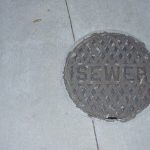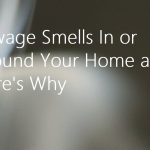When you manage or own a commercial property, it can be hard to keep everything running efficiently. If you have a plumbing problem in your home, such as a clogged drain or a drop in water pressure, you can attempt a repair yourself. If it takes a little time to fix the issue, it can be annoying, but it is possible if you have some basic DIY skills, On the other hand, if you have a plumbing problem in a commercial building, it will have a negative effect on your business, and it could even lead to a loss of revenue. It’s easy to mitigate the risks with a regular plumbing inspection from a qualified professional. This will identify any potential issues, and you can get them fixed before they develop into major problems that are more expensive to fix. In this article, we will look at three tips to help you manage your commercial plumbing needs.
1. Dealing with Clogged Drains
Operating a business with clogged drains is untenable, and this is particularly true if you’re running a bar or restaurant. When the floor is wet on a consistent basis, it represents a slip hazard for you, your employees, and your customers. The presence of dirty water that has backed up into your commercial property can also represent a health hazard. Dealing with a single clogged drain can be pretty simple, but if multiple fixtures are affected, or the clog returns frequently, it’s time to hire a local certified plumber.
When you’re dealing with a clogged drain, avoid using chemical cleaning products. They contain caustic chemicals that are bad for your drains and your health. Pouring hard chemicals into the drain can cause a great deal of damage to your pipes, and this method is not used or encouraged by professional plumbers. Manually removing a clog by hand or with a plumbing snake is a better option, but it isn’t always possible.
You can make your own drain clog remover by pouring an equal ratio of vinegar and hot water into your drain regularly. When you get a clog, pour in some baking soda, leave it for 10-15 minutes, add vinegar and after a short while, pour in some hot water. This is effective on many regular clogs, but you may need to repeat the process a few times.
When it comes to clogged drains, it’s always better to adopt a preventative mindset to prevent the formation of the clog in the first place. Install drain traps at every drain in your property to prevent hair and soap scum from entering the drain. Avoid pouring fat and grease in the drain because when they harden, they become sticky, and the solid cores of new drain clogs. Schedule some regular plumbing maintenance to ensure that your drains and other parts of your system are working as intended.
2. Low Water Pressure Problems
If you have a commercial property where you need to operate a dish washer, washing machine, showers, or some other appliance or fixture, you need good water pressure. Many businesses have a mandatory hand washing area, and it’s hard to get employees to wash their hands if the water pressure is too low. This can lead to other problems such as health code violations that you need to avoid at all costs.
Again, it’s always a better idea to adopt a proactive approach to potential plumbing problems, and this is equally applicable to low water pressure issues. Many hotels, restaurants, and country clubs have successfully solved these problems, and you can too. Before you begin, it’s important to understand the scale of the problem, and this can be achieved by checking the water pressure with an appropriate pressure gauge.
If you discover that your water pressure is too low, it’s time to contact your local certified plumber and get some advice. In many cases, a regulator can be installed to boost your water pressure to a more acceptable level. After all, it isn’t worth the hassle of losing revenue over a plumbing problem that can be handled by a local certified professional.
3. Locate and Fix Silent Leaks
What are silent leaks? They are those tiny water leaks that most of us don’t notice right away. A water leak on this scale can persist for a long time and cause a lot of hidden damage to your commercial property. Silent leaks also waste a lot of water over time, and most people only notice the problem when they see their utility bill. Although a tiny leak may not seem like a major problem, it will get worse over time, and water damage is expensive to fix.
One of the worst things about a silent leak is that it can be very hard to locate. Plumbing pipes run behind walls, under floors, and in crawl spaces, which makes a physical inspection difficult. Sometimes the leak is obvious if you can see a water stain spreading across a ceiling, but this isn’t always the case. The best way to deal with this problem is to schedule some maintenance for your commercial plumbing system. This should include a leak test to determine if you have one or more silent leaks in your property. A local professional plumber has the skills, experience, and specialized tools to locate and fix your silent leaks for you.
In Conclusion
As you may have noticed, there is a thread running throughout our article on plumbing in commercial property. Preventative maintenance is the key to avoiding or mitigating the effects of plumbing issues. The last thing that you need in a commercial property is a problem that can affect your revenue stream. If you work in the food or hospitality industry, you can lose repeat business if you have plumbing problems. It’s a great idea to schedule some regular maintenance for your plumbing system to ensure that everything is working correctly.
If you’re concerned about the health of the plumbing system in your commercial property, contact your local certified plumber today.
By Giovanni Longo President Flood Brothers Plumbing
Giovanni Longo is a 3rd generation master plumber who has been practicing his craft and trade in the greater Los Angeles area for well over a decade and a half. A plumbing and hydraulics-engineering innovator, Giovanni’s particular world-class expertise focuses on dealing with challenging sewer system designs as well as resolving complex commercial and residential draining issues. As a certified Flood Mitigation expert, he is also well versed in a wide variety of water damage and remediation solution.





